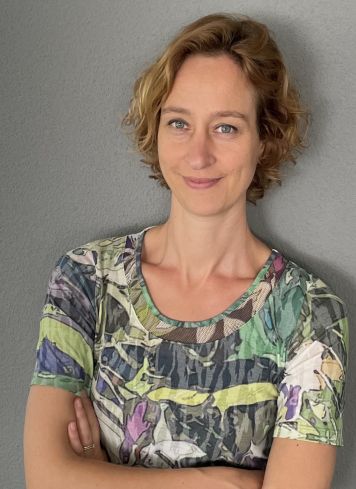Within the SPACETIME project, researchers will gain a great deal of new knowledge about the development of the so-called “lung cancer microenvironment”. This refers to the cooperation between cancer cells, immune cells and support cells found in tumors. “It is by now obvious that a tumor is not an aimlessly proliferating clump of cells, but rather an organized mix of cells that interact both inside and outside the tumor,” says one of the coordinators Febe van Maldegem, researcher at Amsterdam UMC – Cancer Center Amsterdam. To better understand this highly complex relationship, SPACETIME scientists are spatially mapping (“SPACE”) this microenvironment at the microscopic level. They do this with tumor tissue from patients with different stages; early stage to end stage of the disease ('TIME').

Underlying patterns
The composition of the microenvironment can determine how a patient responds to immunotherapy, for example. All the data that the researchers collect are then linked together via computer models. This allows them to see the underlying patterns. They then test these patterns for predictive values in certain treatments. This helps doctors better advise patients on which treatment they need. Co-coordinator Marieke Fransen and researcher at Amsterdam UMC – Cancer Center Amsterdam hopes to have some good biomarkers in hand by the end of the project that can be predictors of the success of specific therapies. With this method, some patients will not have to be burdened with unnecessary therapy.
Horizon Europe; Mission on Cancer
SPACETIME will last 5 years and will be carried out by 15 partners in 7 European countries. This type of research is only possible through close collaboration of multiple researchers from different backgrounds. SPACETIME is part of the EU Mission on Cancer. The goal of this mission is to improve the lives of more than 3 million people through prevention, cure or better treatment by 2030; and for people affected by cancer, including their families, to live longer and better lives.
Scientists involved in the SPACETIME project from Amsterdam UMC – Cancer Center Amsterdam are:
Febe van Maldegem, Marieke Fransen, Yvette van Kooyk, Jan van den Bossche, Tanja de Gruijl, Teodora Radonic, Yongsoo Kim and Idris Bahce.
World Lung Cancer Day
August 1 is World Lung Cancer Day. On that day, extra attention is drawn to patients with lung cancer and their loved ones.

